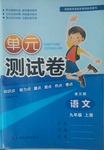题目内容
1.He had attempted to rescue thedrowning(drown) man.分析 他曾试图营救那个快要被淹死的人.
解答 答案是drowning.本题考查语境中选用所给词的恰当形式;drown vt.淹死;淹没;a drowning man一个快要被淹死的人; 故答案是drowning.
点评 本题是要求用所给词的适当形式填空,解题时首先根据句子的结构考虑句中需要的词性;其次,关注所选词的形式的变化:如果是谓语动词关注时态、语态和数的变化;如果是非谓语动词要联系非谓语的基本用法判断非谓语的形式.如果是名词关注单数和复数的选用等.

练习册系列答案
 阳光试卷单元测试卷系列答案
阳光试卷单元测试卷系列答案
相关题目
11.The meeting was concerned ______reforms and everyone present was concerned ______their own interests.( )
| A. | With; about | B. | with; with | C. | For; about | D. | About; with |